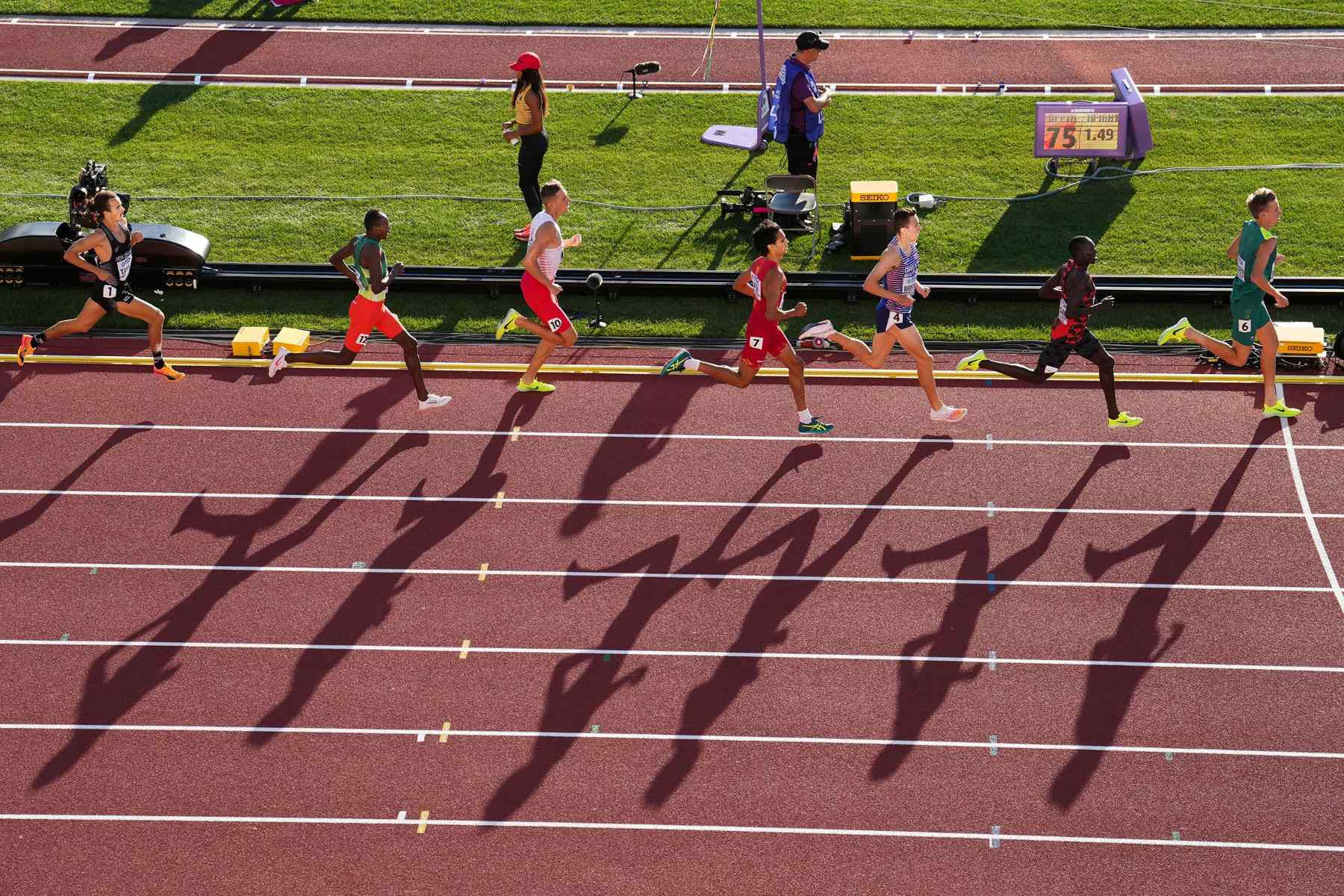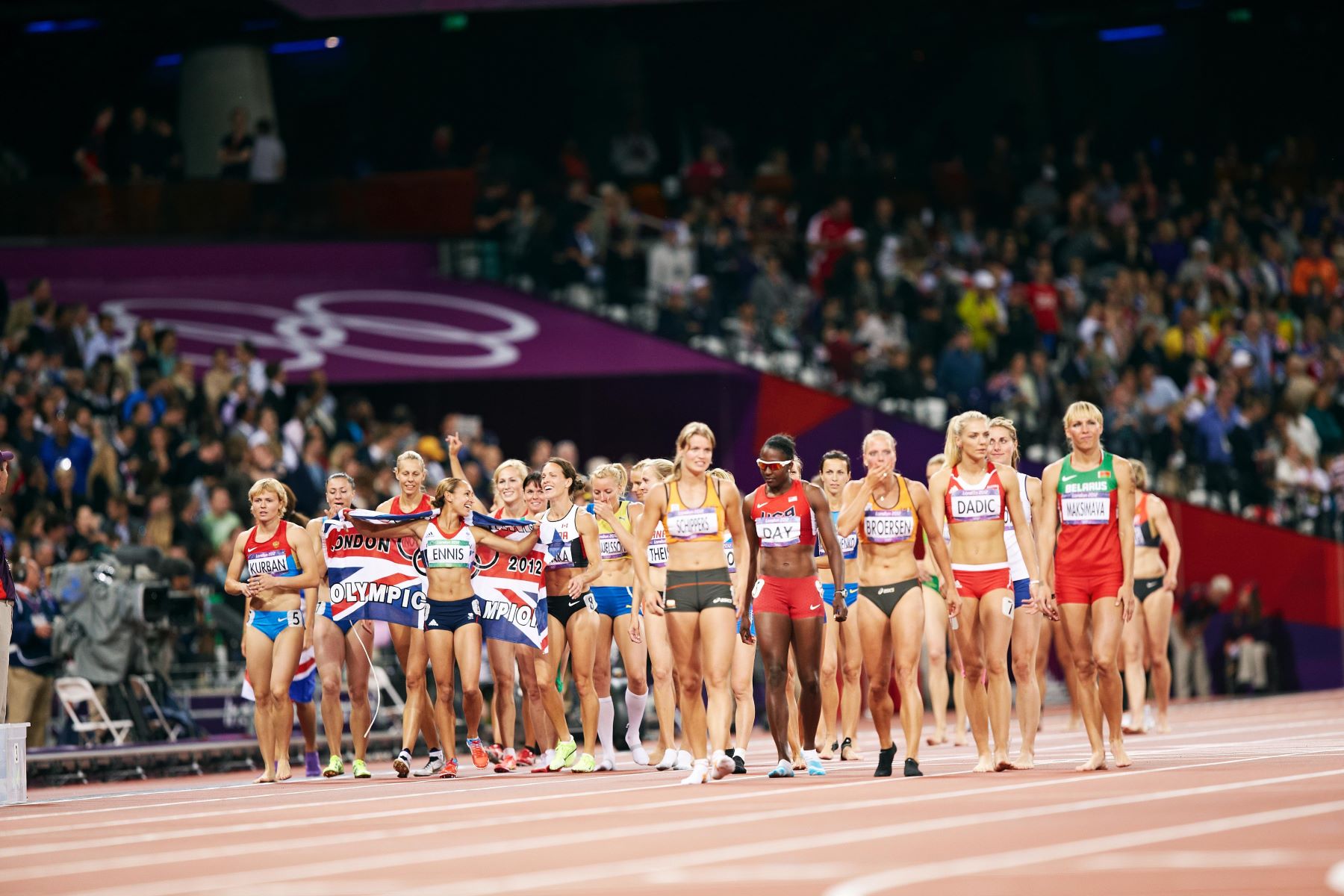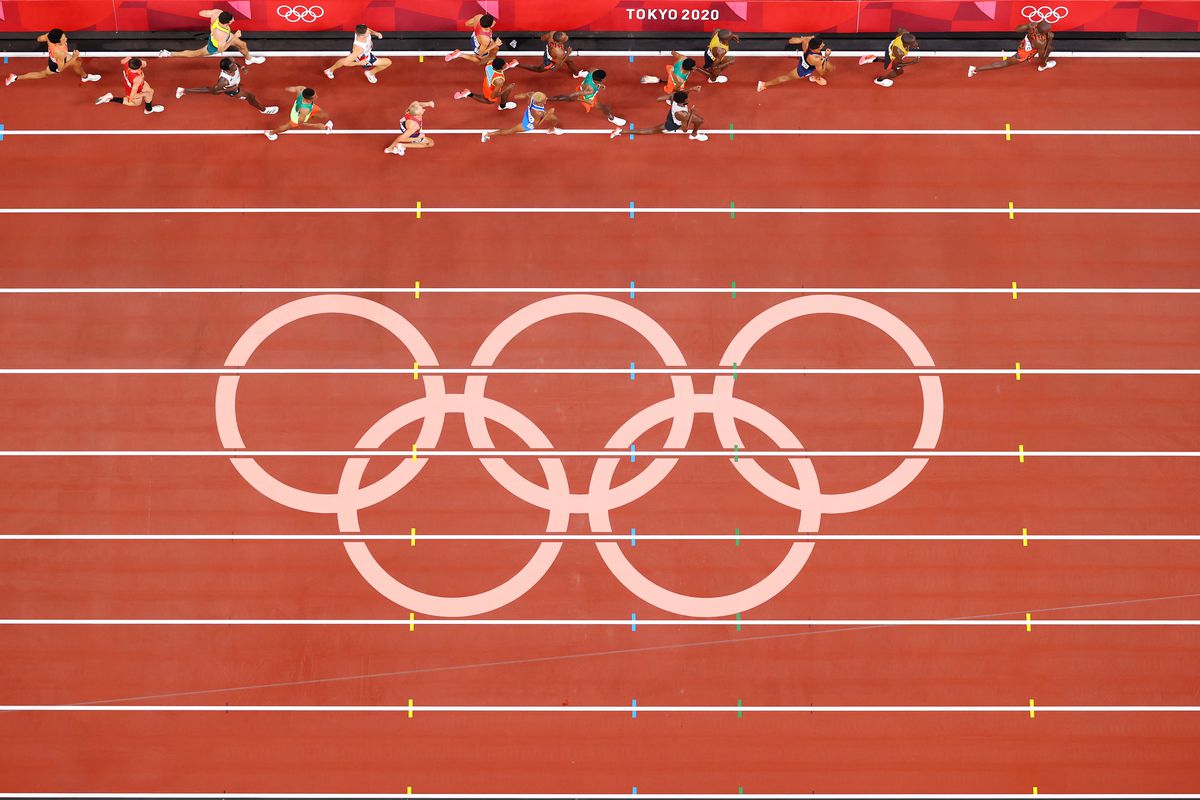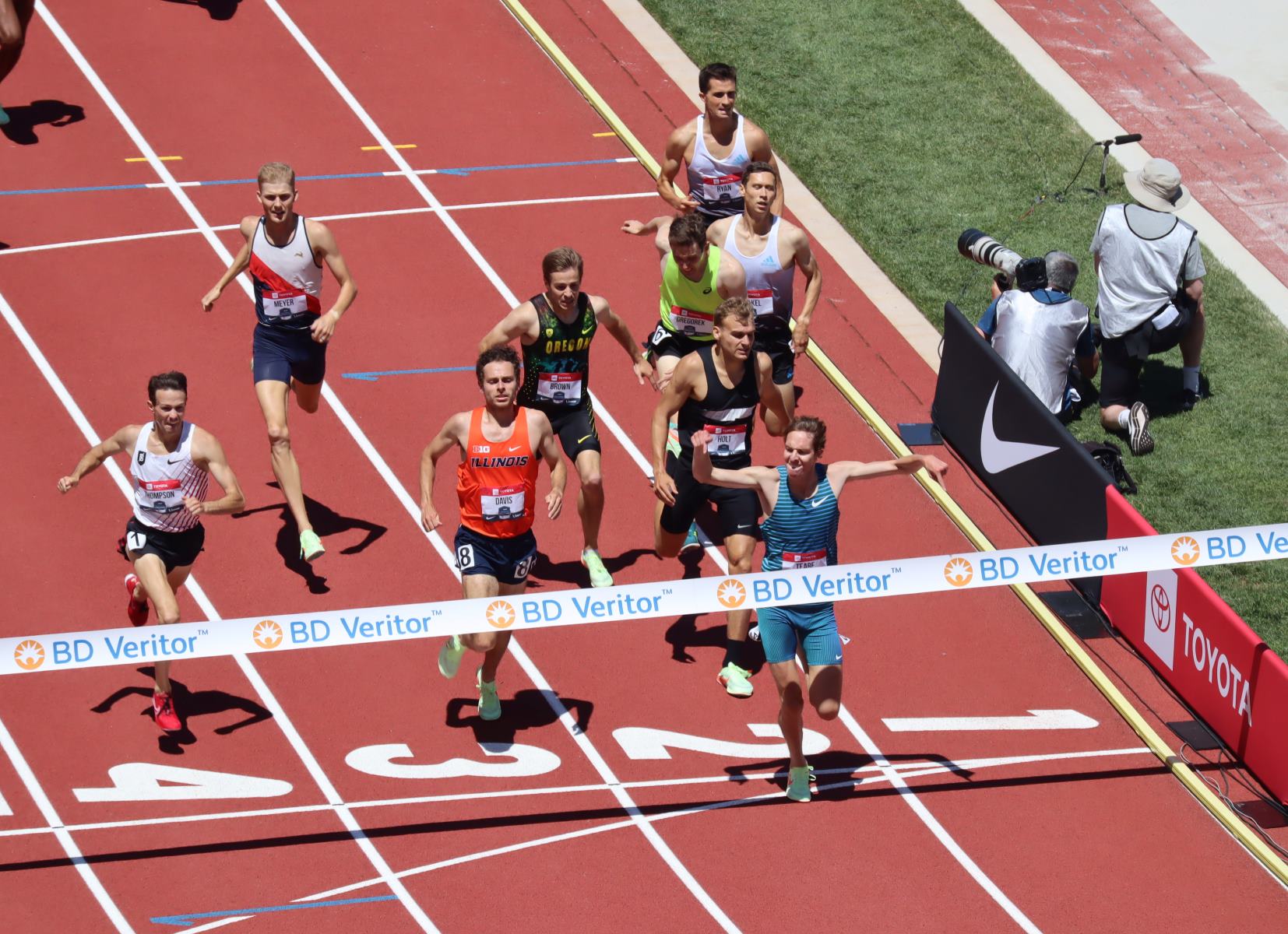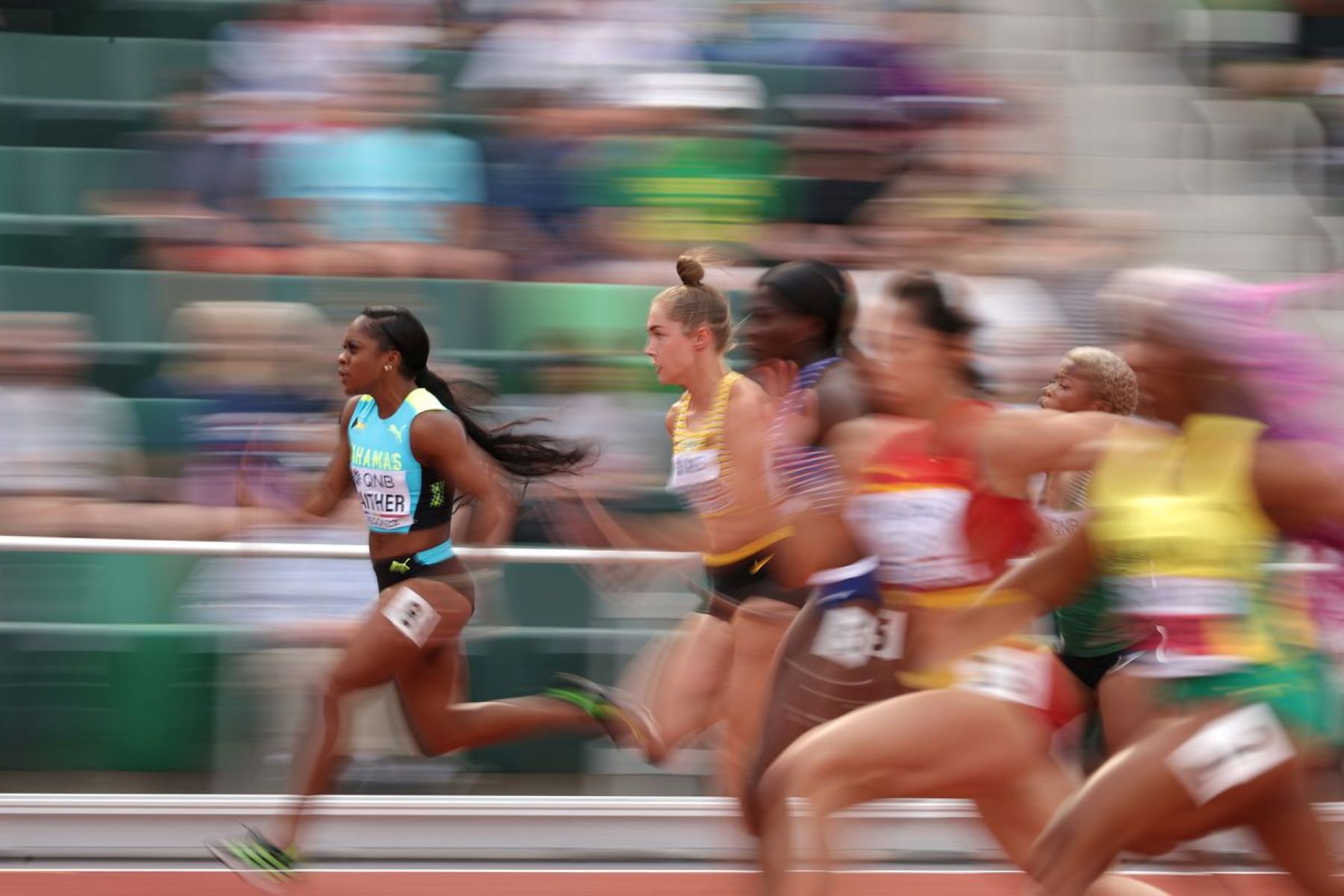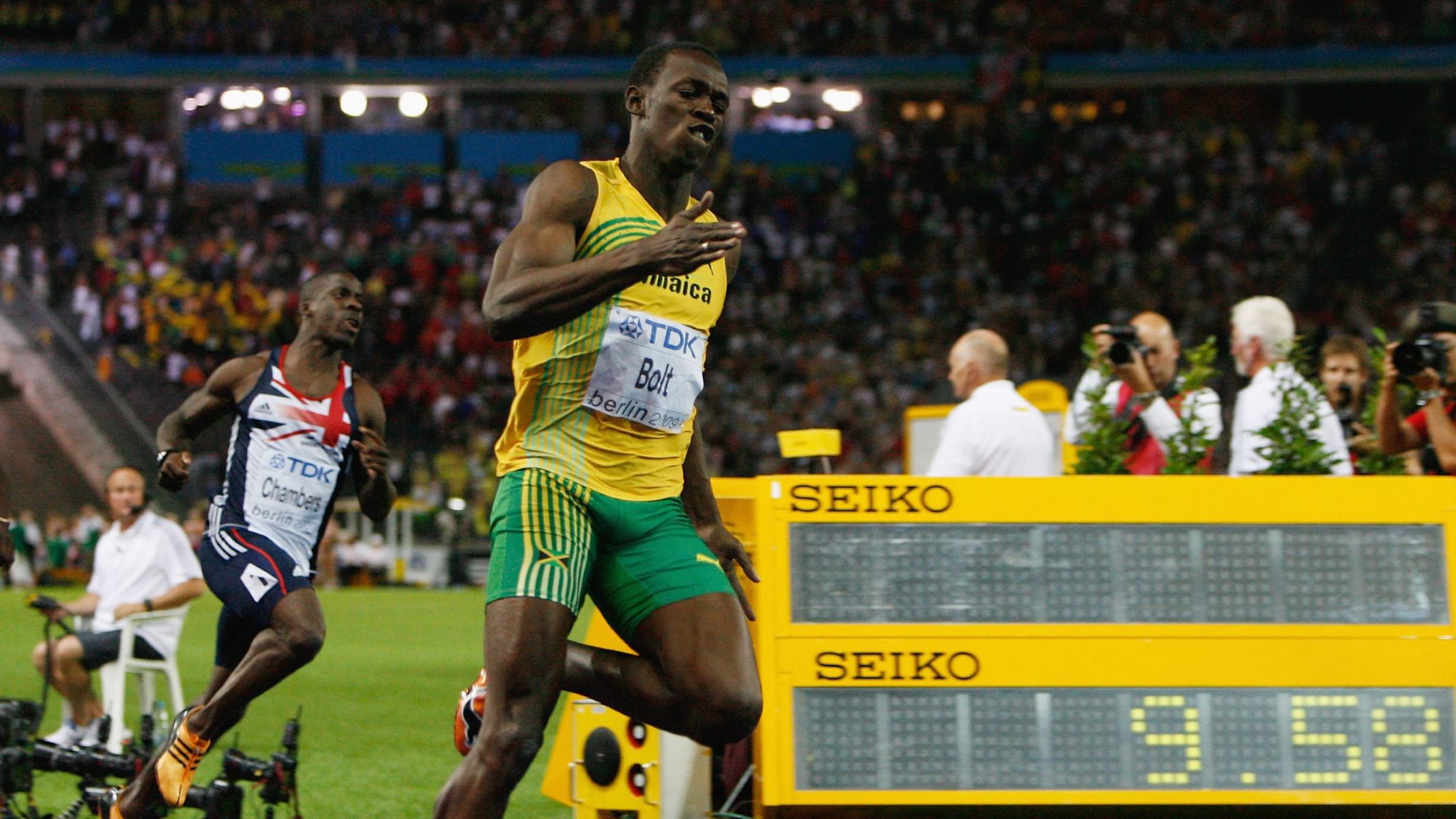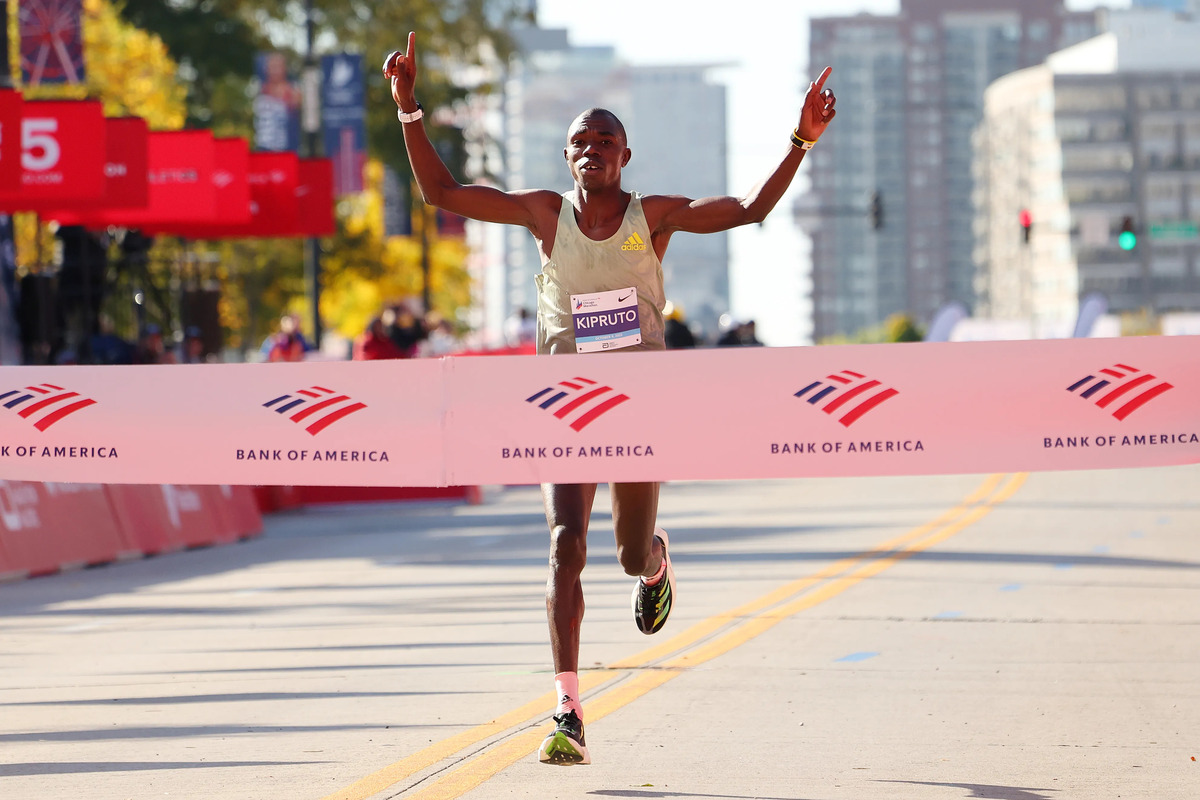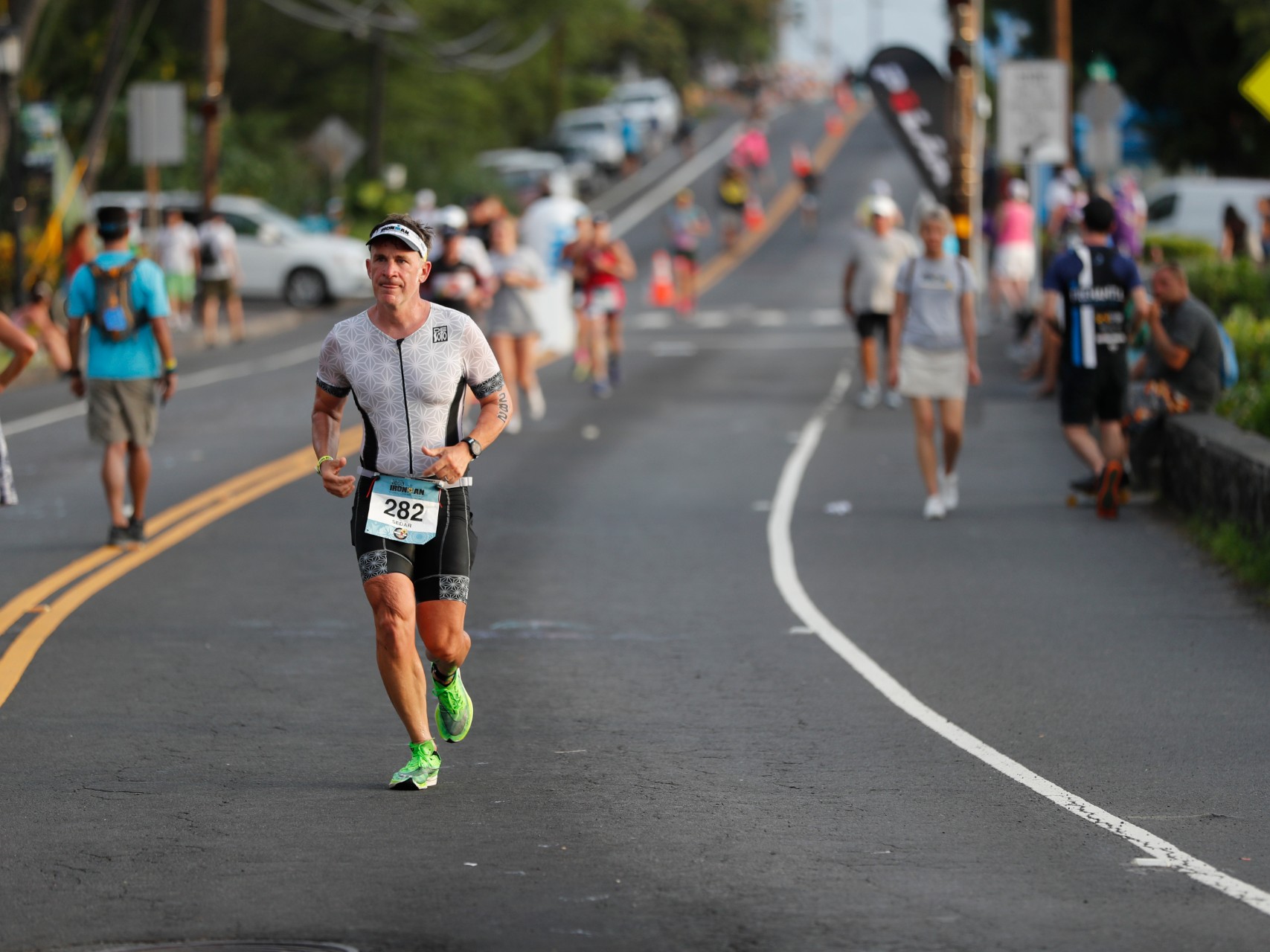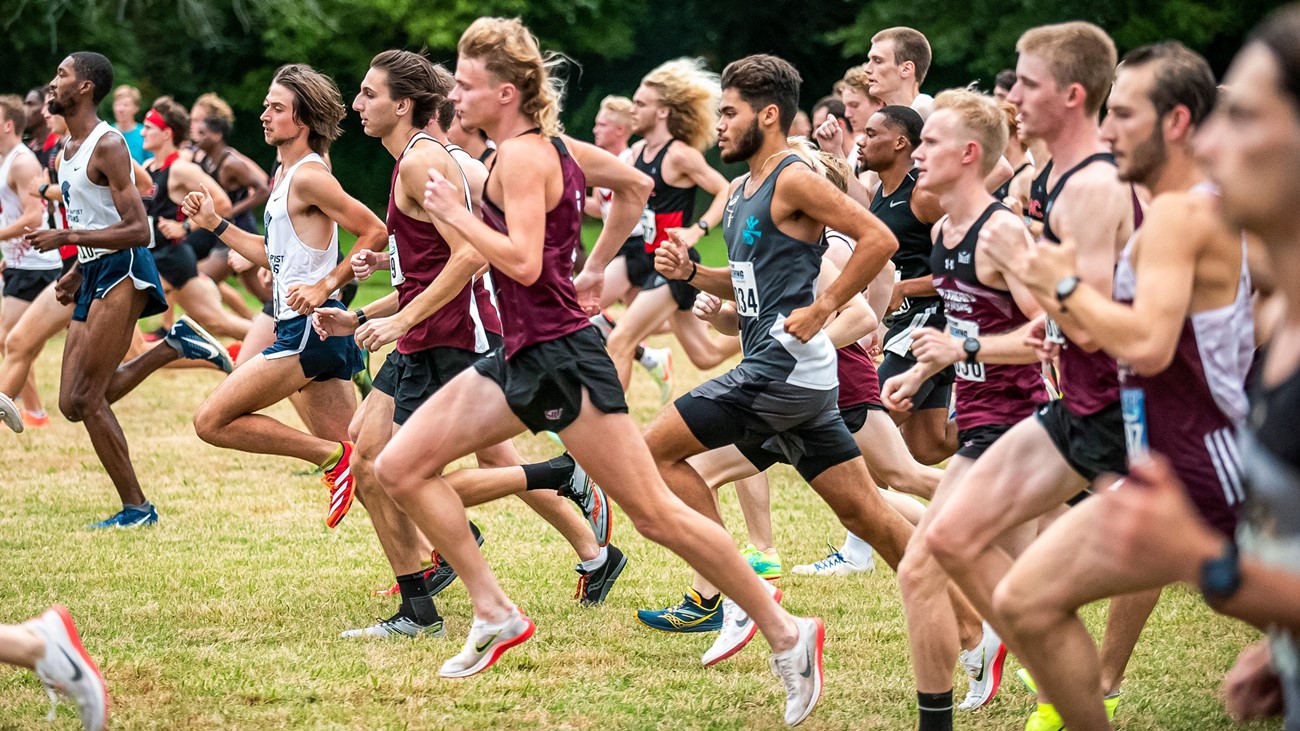Home>Misc>Featured>Why Are Africans Good At Distance Running
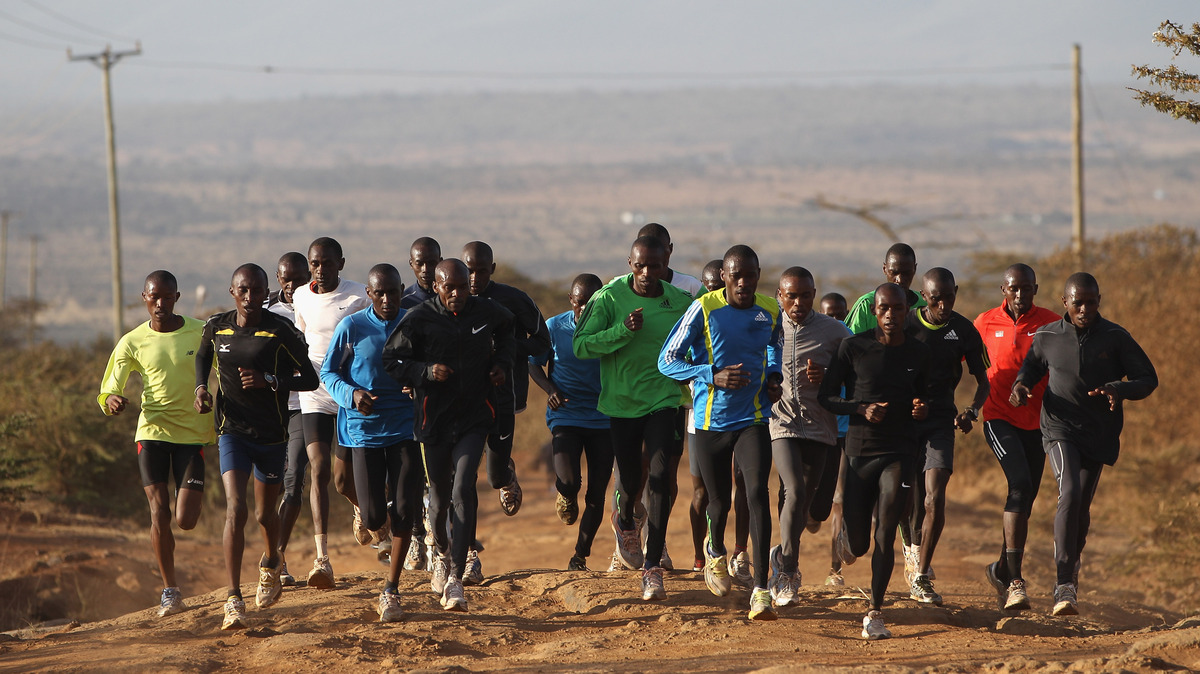

Featured
Why Are Africans Good At Distance Running
Modified: August 21, 2023
Discover why Africans excel in distance running as we explore the unique physiological, cultural, and environmental factors that contribute to their success. Featured article.
Introduction
African runners have long been dominating in distance running events across the globe. From marathons to cross-country races, African athletes have consistently shown outstanding performances, breaking records and winning medals. This phenomenon has sparked curiosity and led to the exploration of various factors that contribute to the success of Africans in distance running.
It is important to note that not all Africans are exceptional long-distance runners, as individual talent and passion play a significant role. However, there are several plausible reasons why Africans tend to excel in this particular discipline. These factors include genetic predispositions, physiological advantages, environmental circumstances, cultural influences, and dedicated training and lifestyle choices.
In this article, we will dive deeper into each of these factors, dissecting them to better understand why Africans dominate distance running competitions. It is essential to approach this topic with an open mind and avoid generalizations, as exceptional athletes can emerge from any part of the world. Nonetheless, exploring the factors behind the successes of African runners can provide valuable insights into the sport of distance running.
Genetic Factors
One of the significant factors contributing to the success of African runners in distance events is their genetic makeup. Several studies have suggested that Africans possess certain genetic variations that give them an advantage in endurance sports.
One such genetic factor is the presence of a high proportion of slow-twitch muscle fibers. Slow-twitch muscle fibers are more resistant to fatigue and are better suited for sustained aerobic activities, which are critical in distance running. Africans, particularly those from East Africa, have been found to have a higher percentage of these fibers compared to individuals from other regions.
Furthermore, researchers have identified specific gene variants, such as the ACE and ACTN3 genes, which may contribute to improved athletic performance. These gene variants are believed to enhance oxygen utilization, muscle function, and overall endurance capacity, making African runners more efficient and capable of sustaining their efforts over long distances.
It is essential to note that while genetic factors may provide an advantage in distance running, they are not the sole determinant of success. Environmental, physiological, and training factors also play a crucial role in an athlete’s performance.
Overall, the genetic factors found in African populations, including the prevalence of slow-twitch muscle fibers and specific gene variants, contribute to their success in distance running. These genetic advantages, combined with other factors, create a perfect foundation for African athletes to excel in the sport.
Physiological Factors
In addition to genetic factors, the physiological characteristics of Africans also contribute to their success in distance running. These physiological factors are developed through a combination of genetics, training, and lifestyle choices.
One of the key physiological advantages of African runners is their natural ability to efficiently use oxygen. They have higher oxygen-carrying capacities, thanks to larger lung volumes, increased hemoglobin levels, and higher red blood cell counts. These physiological adaptations allow for enhanced oxygen delivery to the muscles during exercise, resulting in improved endurance and performance.
Another physiological advantage seen in African runners is their lower body mass index (BMI) and lean muscle mass. The lower BMI reduces energy expenditure and minimizes the strain on joints, while the lean muscle mass allows for enhanced biomechanics and efficient running mechanics.
Additionally, Africans have been found to have a higher tolerance for heat and altitude. This resilience can be attributed to their upbringing in areas with higher temperatures and higher altitudes. It enables them to excel in races held in hot and high-altitude environments, where other athletes may struggle with heat exhaustion or oxygen deprivation.
However, it is important to note that not all Africans possess these physiological advantages, and individual differences within the population exist. Each athlete’s specific genetic makeup, training regimen, and lifestyle choices also influence their physiological characteristics and ultimately their performance in distance running.
Overall, the combination of natural physiological advantages, such as improved oxygen utilization, lean muscle mass, and heat and altitude tolerance, gives African runners an edge in distance running competitions. These factors, along with genetics and other elements, contribute to their exceptional performances and success in the sport.
Environmental Factors
Environmental factors have played a significant role in shaping African runners’ success in distance running. The natural surroundings and conditions in which they grow up and train have contributed to their physical and mental preparation for endurance events.
One of the key environmental factors is altitude. Many African countries, particularly those in East Africa, are blessed with high-altitude regions. The high altitude stimulates the production of more red blood cells, leading to increased oxygen-carrying capacity in the blood. This adaptation is beneficial for athletes competing at sea-level races, as they are able to deliver oxygen to their muscles more efficiently.
Besides altitude, the climate in many African regions is beneficial for training in distance running. The combination of warm temperatures and ample sunshine allows athletes to train year-round without weather-related interruptions. The consistent training in such favorable conditions helps build endurance, heat tolerance, and overall performance in long-distance events.
Furthermore, the availability of diverse terrains is another advantage. African runners often have access to various surfaces for training, including hilly terrains, dirt roads, and cross-country trails. This exposure to different training surfaces helps strengthen their muscles, improve balance and coordination, and develop the necessary skills for tackling varied race courses.
Overall, the environmental factors, such as high altitude training, favorable climates, and diverse training terrains, provide African runners with a unique advantage in distance running. These environmental conditions shape their physiological adaptations and mental fortitude, ultimately contributing to their success in the sport.
Cultural Factors
Cultural factors also play a significant role in explaining the success of African runners in distance events. The cultural practices and traditions surrounding running in African communities contribute to the development of talent and the passion for long-distance running.
Running is deeply ingrained in many African cultures, where it serves a variety of purposes. It is used as a means of transportation, hunting, and even as a form of celebration or ritual. From a young age, African children are exposed to running as a natural part of their daily lives, which helps build endurance and stamina from an early stage.
Moreover, running is often seen as a way to escape poverty and seek better opportunities. Many young African athletes view running as a pathway to success, not only in the sporting arena but also as a means to earn scholarships, gain recognition, and potentially improve their socioeconomic status.
Furthermore, the sense of community and support within African running cultures is instrumental in nurturing talent. These communities provide a network of support, with experienced runners acting as mentors and role models for aspiring athletes. The collective spirit and camaraderie motivate and inspire young runners to push themselves beyond their limits.
Additionally, cultural values and traditions place an emphasis on discipline, hard work, and perseverance – all attributes necessary for success in distance running. African runners often showcase a high level of mental fortitude, driven by the cultural values instilled in them from a young age.
Overall, the cultural factors surrounding running in African communities contribute to the success of African runners in distance events. The cultural practices, traditions, and values foster a deep passion for running, establish a strong sense of community, and imbue athletes with the necessary discipline and mental toughness to excel in the sport.
Training and Lifestyle
The training methods and lifestyle choices of African runners are crucial components of their success in distance running. These athletes follow rigorous training regimens and adopt healthy lifestyles that contribute to their exceptional performances.
African runners typically engage in high-volume training, focusing on building endurance and improving aerobic capacity. They log countless miles, often running twice a day, to develop the necessary physical and mental stamina to excel in long-distance events. This consistent training builds a strong aerobic base, allowing athletes to maintain a faster pace for extended periods.
Additionally, African runners incorporate a variety of training intensities and terrains into their training programs. They perform speed workouts, interval training, hill repeats, and long runs to improve their overall fitness and develop the ability to handle different race conditions. The diverse training methods help athletes adapt to various race scenarios and improve their overall performance.
Training is not the only aspect that contributes to the success of African runners. Their lifestyle choices also play a significant role. African athletes often lead modest and disciplined lives, focusing on nutrition and rest to optimize their performance. They prioritize consuming wholesome, nutrient-rich foods that fuel their bodies and aid in recovery. Hydration is also crucial, especially in warm climates, to maintain optimal performance.
Rest and recovery are given equal importance in the training and lifestyle of African runners. They recognize the significance of allowing their bodies to recuperate from intense workouts to avoid injury and achieve peak performance. Incorporating stretching, massage, and adequate sleep into their routine helps in maintaining the overall well-being of the athletes.
Furthermore, the resilience and mental discipline of African runners are shaped by their training and lifestyle choices. They develop the ability to face challenging race situations, push through fatigue, and maintain focus for prolonged periods of time. These mental attributes contribute to their ability to sustain high speeds and maintain a competitive edge.
In summary, the training methods and lifestyle choices of African runners are key factors in their success in distance running. The combination of high-volume training, diverse training methods, focus on nutrition and rest, and mental discipline contributes to their exceptional performances and sets them apart in the world of long-distance running.
Conclusion
African runners have undoubtedly made a significant impact in the world of distance running. While individual talent and dedication are crucial, there are clear factors that contribute to their dominance in the sport. Genetic factors, including a high proportion of slow-twitch muscle fibers and specific gene variants, provide African runners with natural advantages. Physiological characteristics, such as enhanced oxygen utilization, lower body mass index, and heat and altitude tolerance, further contribute to their success. Environmental factors, including high altitude training, favorable climates, and diverse training terrains, shape their physical adaptations. Cultural factors, including the cultural significance of running and strong community support, foster a passion for the sport. Finally, the rigorous training methods, healthy lifestyle choices, and mental discipline exhibited by African runners help them maintain their edge in distance running.
It is important to emphasize that exceptional athletes can emerge from any part of the world, and each individual’s success is a result of a combination of factors, both intrinsic and extrinsic. The success of African runners in distance running should not be solely attributed to one factor but rather viewed as a combination of genetic, physiological, environmental, cultural, and training elements.
Studying the factors behind the success of African runners provides valuable insights into the sport of distance running and inspires athletes worldwide. It highlights the importance of genetics, training techniques, cultural support, and lifestyle choices in achieving excellence in long-distance events. By understanding and appreciating these factors, we can further enhance the sport and create opportunities for athletes to reach their full potential.
